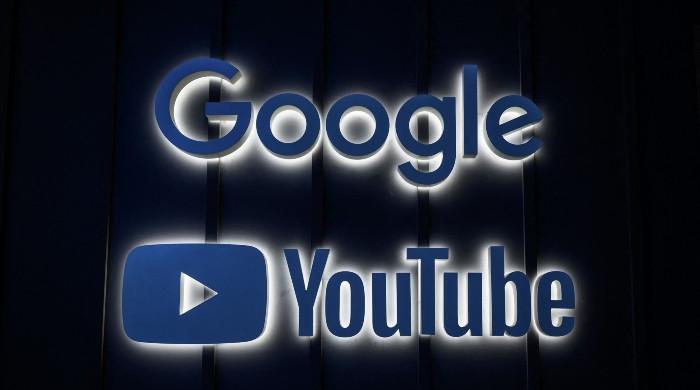
YouTube to Pay $22 Million to Settle Donald Trump Lawsuit: What You Need to Know
In a significant legal development, YouTube has agreed to pay $22 million to settle a lawsuit filed by former President Donald Trump. This lawsuit arose after YouTube suspended Trump’s account, a move that sparked widespread controversy and debate over freedom of speech and social media governance. This article explores the details surrounding this settlement, its implications, and answers some frequently asked questions regarding the case and its broader context.
Background of the Lawsuit
The lawsuit was initiated by Donald Trump after YouTube suspended his account in January 2021, following the events surrounding the Capitol riots. The video-sharing platform cited violations of its policies regarding hate speech and incitement to violence as the reasons for the suspension. This decision was part of a broader trend among social media companies to restrict the accounts of public figures who they believe pose a risk of promoting violence or misinformation.
Trump’s legal team argued that YouTube's actions were unjust and amounted to censorship, thereby infringing on his First Amendment rights. The lawsuit claimed that YouTube's suspension was not only damaging to Trump's reputation but also financially detrimental, as it limited his ability to communicate with his supporters and share his political views.
Details of the Settlement
After a lengthy legal battle, YouTube has decided to settle the lawsuit for $22 million. This settlement is noteworthy for several reasons:
1. Financial Compensation: The $22 million figure reflects the perceived damages Trump claimed from the suspension of his account. While YouTube has not admitted any wrongdoing, the financial settlement indicates a desire to resolve the issue without further legal entanglements.
2. Policy Review: As part of the settlement, YouTube may be prompted to review and potentially revise its content moderation policies. This could lead to more transparent guidelines regarding how and when accounts can be suspended or banned, particularly for public figures.
3. Precedent for Future Cases: This case sets a precedent for how social media platforms handle high-profile accounts in the future. The implications of this settlement could influence other politicians and public figures who might consider legal action against social media platforms in similar circumstances.
Implications for Social Media Platforms
The settlement highlights the ongoing tension between social media platforms and their users, particularly when it comes to moderating content. As platforms like YouTube navigate the fine line between maintaining safe online environments and respecting users' rights to free speech, the following implications arise:
- Increased Scrutiny: Social media companies can expect increased scrutiny regarding their content moderation policies. Users, especially public figures, may feel encouraged to challenge platform decisions that they perceive as unfair or biased.
- Potential Policy Changes: Following this settlement, YouTube and other platforms may be compelled to develop clearer policies regarding account suspension and reinstatement, ensuring users understand the rules governing their participation.
- Impact on User Trust: Trust in social media platforms may be affected as users assess how these companies handle controversial figures and sensitive content. This could lead to a shift in user engagement and platform loyalty.
Conclusion
The $22 million settlement between YouTube and Donald Trump marks a significant moment in the ongoing conversation about free speech, social media governance, and the responsibilities of tech companies. As the landscape of social media continues to evolve, this case underscores the complexities involved in managing platforms that serve as public forums for dialogue and debate. The implications of this settlement will likely resonate well beyond this individual case, shaping the future of social media regulation and user engagement.
FAQs About the YouTube Settlement with Donald Trump
1. Why was Donald Trump's YouTube account suspended?
Donald Trump’s YouTube account was suspended due to violations of the platform's policies on hate speech and incitement to violence. This action was taken in the wake of the January 6 Capitol riots, which raised concerns about the potential for further violence and misinformation.
2. What does the $22 million settlement mean for Trump?
The $22 million settlement provides financial compensation to Trump, which he claims is a reflection of the damages incurred from the suspension of his account. It also signifies a resolution to the legal dispute without further court proceedings.
3. Will YouTube change its content moderation policies after this settlement?
While YouTube has not explicitly stated that it will change its policies, the settlement may prompt a review and potential adjustments to its content moderation guidelines. This could lead to clearer rules regarding account suspensions and reinstatements, especially for high-profile users.
4. What are the broader implications of this lawsuit for social media companies?
This lawsuit and its outcome highlight the ongoing challenges social media companies face in balancing content moderation with users' rights to free speech. It may lead to increased scrutiny of their policies and practices, potentially shaping the future of social media governance.
5. How does this case affect other public figures on social media platforms?
The case sets a precedent that other public figures may consider when facing similar situations. It highlights the possibility of legal action against social media companies and could embolden more individuals to challenge content moderation decisions that they perceive as unjust.
Tags
Technology
